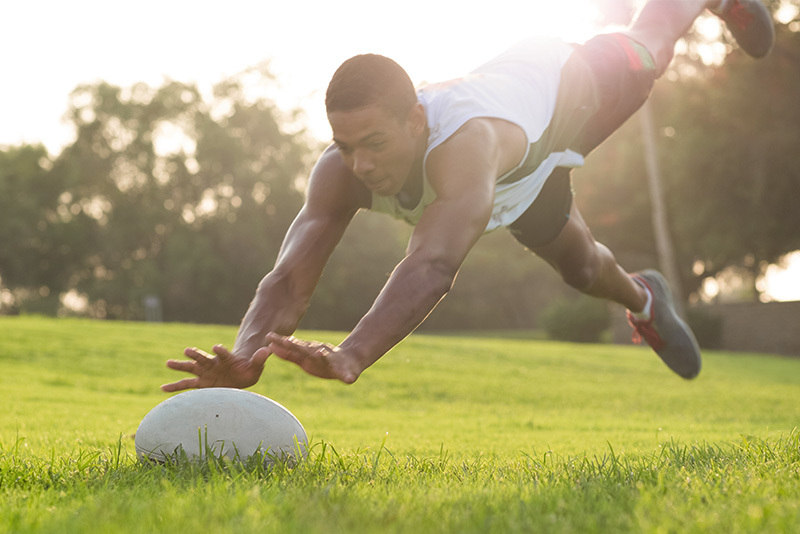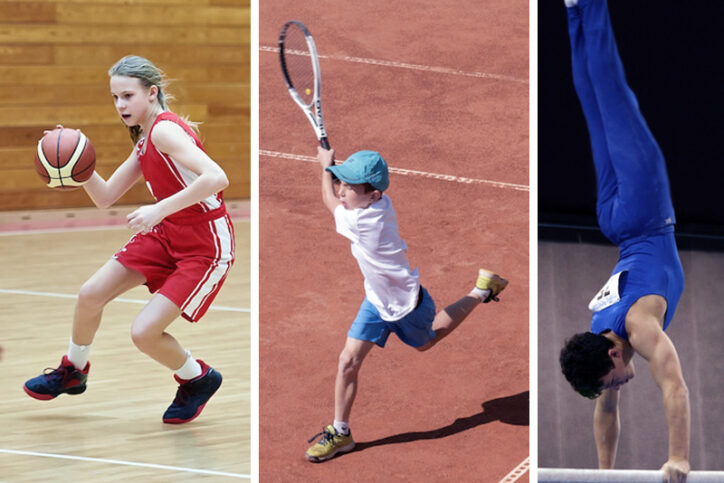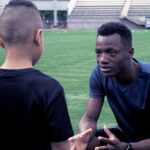Early sports specialization: How to support your child

Early sports specialization — intensive training and competition in a single sport at the expense of other activities — has become the expected norm for many young athletes hoping to excel. While parents and athletes may see specializing as the only way to achieve future athletic glory, getting too serious too early has produced a rash of “adult” injuries in very young kids.
Early sports specialization: The new normal?
Say your child plays in a local sports league. As the season wears on, your child or another parent tells you about a club team that continues after the official season ends. A bunch of kids are joining and your child is enthusiastic, so you sign them up. Time passes, new opportunities come along, and pretty soon, your child is playing a single sport at an increasingly competitive level. Your child used to play a variety of sports but now they don’t have time.
“Kids used to specialize in a single sport in high school, if they specialized at all,” says Dr. Mininder Kocher, chief of the Sports Medicine Division at Boston Children’s Hospital. “Now it’s happening in middle school, even grade school.”
Kids who specialize in a single sport miss out on the benefits of cross-training. “They’re not giving their bodies a rest between seasons or participating in a variety of sports that put different kinds of stress on the body,” explains Dr. Kocher. This, plus the increased hours specialized athletes typically spend training, puts kids’ bodies at risk of injuries that could affect them well into adulthood.
By contrast, sports at an appropriate degree of intensity can boost a child’s health and confidence. “Physical activity is good for a child’s fitness and coordination,” says Dr. Kocher. “And playing sports can provide a group of friends and identity. If a child has to quit playing because they get injured or burned out, they miss out on all those benefits.”

Early sports specialization injuries
Dr. Kocher, like many of his colleagues, has seen an increase in serious sports injuries in recent years. “More kids are getting injured, the injuries are more severe, and they’re happening to younger patients,” he says. Common sports injuries include:
- Anterior cruciate ligament (ACL) injury, damage to the ligament that helps stabilize the knee joint. The most common type of ACL injury in children is a complete tear and usually requires surgery.
- Osgood-Schlatter disease, an overuse injury of the knee that causes pain and swelling. Treatment usually includes rest, ice, compression, and elevation (R.I.C.E.), time off from sport, and sometimes, physical therapy.
- Osteochondritis dissecans (OCD) occurs when the blood supply to the joint is disrupted and a loose piece of bone and cartilage separates from the end of the bone. In early stages, OCD can often be treated with rest, ice, compression, and elevation (R.I.C.E.). In more severe cases, the condition requires surgery and months of complete rest.
- Stress fracture, a small crack in the bone, most often in the shin or foot, caused by repetitive stress. A child with a stress fracture needs to take time off from all activity while the bone heals.
- Spondylolysis, a stress fracture in the lower spine. If left untreated, the fractured vertebra slips out of alignment, a condition known as spondylolistheses. In most cases, both conditions can be treated with rest and physical therapy, but a severe case may require spinal fusion surgery.
When is it safe to specialize?
“There’s not a definite age when kids are considered old enough to specialize,” says Dr. Andrea Stracciolini, director of Medical Sports Medicine at Boston Children’s. Instead, there are stages of athletic development that sports medicine specialists consider necessary to healthy long-term participation in sports. “It’s important for kids to have time in each stage of physical and mental athletic development before they move onto the next one.”
Stages of athletic development
- Learning the fundamentals of movement, such as how to run and kick a ball.
- Learning how to train, including the discipline of training while learning new skills.
- Training to compete, including physical conditioning and preparing for the physical, mental, and emotional demands of competition.
- Training to win, including the ability to overcome a variety of setbacks, the expectation to win and ability to handle defeat.
- Active for life, in competitive or recreational sports throughout adulthood.
How parents can support their kids
Given all the pressure to specialize, how can parents protect their young athletes from overtraining and burnout? Dr. Kocher offers the following advice:
- Trust your parental instincts. If you have a gut feeling your child is training too much, you’re probably right. A good rule of thumb is that the number of hours your child trains per week should not exceed their age. A 10-year-old should train no more than 10 hours a week, for instance. They can, however, be physically active during their time off, ideally doing something fun that adds variety, even spontaneity, to their routine.
- Encourage sports sampling. Give your child a chance to try different sports, at least through age 12. The sport they love in third grade may not interest them in fourth or fifth grade. Not only that, playing a variety of sports will give your child’s body a chance to develop in a balanced way.
- Take pain seriously. The maxim, “no pain, no gain,” does not apply to youth sports. “If there’s pain, there’s usually something wrong,” warns Dr. Kocher. Encourage your child to let you know if they’re in pain. If they do, consult with a physician. “It might turn out to be something that can be treated with rest, ice, and ibuprofen,” says Dr. Kocher. “But playing through pain increases the risk of serious injury that could require surgery and lead to arthritis later in life.”
- Remember why children play sports. “The two main reasons kids are doing sports are to have fun and be with their friends.” For young children in particular, “play” is, and should remain, the reason they keep returning to the field, track, or pool.
Learn more about the Sports Medicine Division.
Related Posts :
-

Keeping sports fun: Preventing burnout in young athletes
It’s easy to tell when a kid loves sports: Maybe they practice drills in the driveway until it’s ...
-

When athletes have bad days: Tips for athletes and parents
No matter how hard they work, every athlete has bad days. Whether it’s a stumble, fumble, or outright loss, ...
-

After two ACL tears, a skier reconnects with her body and her sport
The memory remains vivid in Sophia’s mind. Racing down a slalom course at top speed, she hit a patch ...
-

Sports injuries: Why ignoring pain is bad for athletes
“No guts, no glory.” “No pain, no gain.” “Rub some dirt in it.” Sports clichés like these encourage young ...





